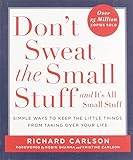The Nar-Anon Family Groups are a worldwide fellowship for those affected by someone else’s addiction. As a Twelve-Step Program, we offer our help by sharing our experience, strength, and hope.
Nar-Anon’s Purpose
Nar-Anon is a twelve-step program designed to help relatives and friends of addicts recover from the effects of living with an addicted relative or friend. Nar-Anon’s program of recovery uses Nar-Anon’s Twelve Steps and Twelve Traditions. The only requirement to be a member and attend Nar-Anon meetings is that there is a problem of drugs or addiction in a relative or friend. Nar-Anon is not affiliated with any other organization or outside entity.
- We admitted we were powerless over the Addict -- that our lives have become unmanageable.
- Came to believe that a Power greater than ourselves could restore us to sanity.
- Made a decision to turn our will and our lives over to the care of God as we understood Him.
- Made a searching and fearless moral inventory of ourselves.
- Admitted to God, to ourselves, and to another human being the exact nature of our wrongs.
- Were entirely ready to have God remove all these defects of character.
- Humbly asked Him to remove our shortcomings.
- Made a list of all persons we had harmed and became willing to make amends to them all.
- Made direct amends to such people whenever possible except when to do so would injure them or others.
- Continued to take personal inventory and when we were wrong promptly admitted it.
- Sought through prayer and meditation to improve our conscious contact with God as we understood Him, praying only for knowledge of His will for us and the power to carry that out.
- Having had a spiritual awakening as a result of these steps, we tried to carry this message to others and to practice these principles in all our affairs.
Contact; Nar-Anon
See also;
- 12-Step Treatment More Effective than Alternative
- Abstinence from Heroin Addiction Works
- Addictive Family Roles
- What About This Spiritual Awakening Thing?
- Strategies for Dealing With Denial










